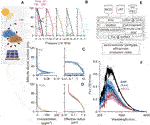2022-04-26 カリフォルニア大学サンタバーバラ校(UCSB)
Nature誌に掲載された論文では、国際的な研究者の共同研究が、温暖化した海洋が増大する世界の食欲を満たす可能性について徹底的に考察しています。
<関連情報>
- https://www.news.ucsb.edu/2022/020617/tomorrow-s-mariculture
- https://www.nature.com/articles/s41586-022-04674-5
気候変動下での海洋食料生産の拡大 Expanding ocean food production under climate change
Christopher M. Free,Reniel B. Cabral,Halley E. Froehlich,Willow Battista,Elena Ojea,Erin O’Reilly,James E. Palardy,Jorge García Molinos,Katherine J. Siegel,Ragnar Arnason,Marie Antonette Juinio-Meñez,Katharina Fabricius,Carol Turley & Steven D. Gaines
Nature Published: 27 April 2022
DOI:https://doi.org/10.1038/s41586-022-04674-5

Abstract
As the human population and demand for food grow1, the ocean will be called on to provide increasing amounts of seafood. Although fisheries reforms and advances in offshore aquaculture (hereafter ‘mariculture’) could increase production2, the true future of seafood depends on human responses to climate change3. Here we investigated whether coordinated reforms in fisheries and mariculture could increase seafood production per capita under climate change. We find that climate-adaptive fisheries reforms will be necessary but insufficient to maintain global seafood production per capita, even with aggressive reductions in greenhouse-gas emissions. However, the potential for sustainable mariculture to increase seafood per capita is vast and could increase seafood production per capita under all but the most severe emissions scenario. These increases are contingent on fisheries reforms, continued advances in feed technology and the establishment of effective mariculture governance and best practices. Furthermore, dramatically curbing emissions is essential for reducing inequities, increasing reform efficacy and mitigating risks unaccounted for in our analysis. Although climate change will challenge the ocean’s ability to meet growing food demands, the ocean could produce more food than it does currently through swift and ambitious action to reduce emissions, reform capture fisheries and expand sustainable mariculture operations.



